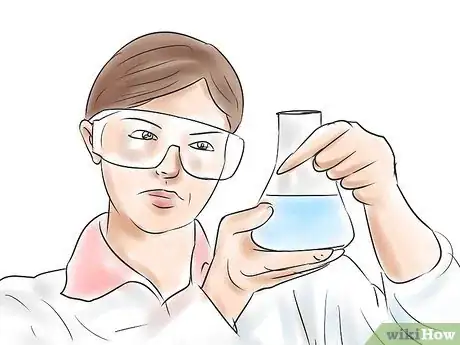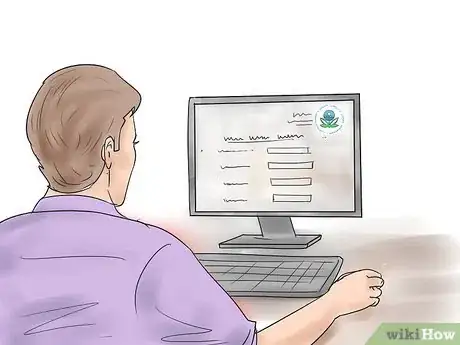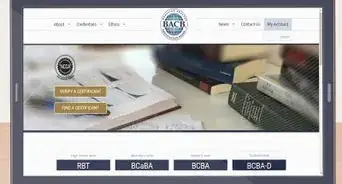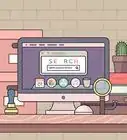wikiHow is a “wiki,” similar to Wikipedia, which means that many of our articles are co-written by multiple authors. To create this article, volunteer authors worked to edit and improve it over time.
There are 7 references cited in this article, which can be found at the bottom of the page.
This article has been viewed 68,922 times.
Learn more...
Environmental employment is on the rise, according to the Bureau of Labor Statistics. People who test air and soil quality, do environmental audits, manage environments, monitor environmental standards and write environmental policies are normally called environmental consultants. They are hired by governments and businesses to ensure they are compliant and they are making green decisions to please their customers. People in the environmental consulting field are normally highly educated, analytic and experienced. If you are seeking an environmental consulting career, you should plan a scientific education with plenty of practice in the field. Find out how to be an environmental consultant.
Steps
-
1Earn a Bachelor of Science degree. Environmental consulting requires a sound basis in science, so choose a degree in biology, geology, chemistry or environmental science[1] .
- In order to help increase your skills, you may want to pursue a minor degree in business, public relations, construction, education or communications. This may dictate your future internships or your role in an environmental consulting firm.
-
2Seek an environmental consulting internship. While you are still in undergraduate studies, or taking a break for the summer, apply for internships with private or governmental consulting firms. This will give you the necessary experience and contacts that will help you get a job after college.[2]
- Internships usually give you experience working on environmental projects. You may be asked to organize projects, write or assist on presentations, conduct research or laboratory work.
Advertisement -
3Get a job in a related field. Most consulting positions are available to people with 2 to 5 years of work experience. Apply for jobs as a technician or field consultant, so that you have experience in gathering, analyzing and processing environmental samples.
- Most jobs in environmental analysis or fieldwork are entry-level experience. You may need to work up the ladder at your job in order to expand your skill set.
-
4Take your Graduate Record Examination (GRE). This test is taken by people who want to pursue graduate studies. Many positions available in the environmental consulting field are now going to people with master's degrees, so ensure you get good scores, especially on the science sections.[3]
-
5Earn a master's degree in environmental science. An additional 2 to 3 years of study should allow you to specialize in a specific type of environmental consulting, such as land-use planning, hazardous waste or air and environmental quality. Receiving a master's degree will make it easier to get a job and help you to command a higher salary.
-
6Apply for jobs in governmental or private consulting. With relative work experience, a BS and MS, you will have the credentials needed for a consulting career.
- Apply for work with the Environmental Protection Agency (EPA) or other government agencies. You can ensure companies or individuals are meeting environmental standards, and help to shape environmental policy.
- Apply for work with a private consulting firm. The largest job growth in the industry is currently within the private sector. The number of jobs available is likely to increase by 28 percent until 2018, according to the Bureau of Labor Statistics. The following are niches for green consulting:
- If you enjoy fieldwork, you can be a consultant that specializes in gathering data and creating geotechnical reports. If you enjoy investigation or analysis, then interpreting newly gathered and baseline data may be a good career path.
- If you have experience or enjoy public relations or communications, you can consult about environmental education. Governmental and private agencies often hire people to do research or public education projects.
- If you have a background in construction or architecture, you can specialize in the LEED (Leadership in Energy and Environmental Design) system. You can help individuals, businesses and agencies to build according to new green standards.
- If you want to write policy or work with the legislature, then you will want to move to a government hub, such as Washington D.C. You will need excellent law base and communications skills.
Community Q&A
-
QuestionWhat education do I need to become an environmental consultant?
 Community AnswerThere is education for living and education for life. To earn a living, you need a B.S. degree in environmental related sciences. Consultants also need good business and communication skills. Education for life comes from experience and wanting to help others making the world a better place!
Community AnswerThere is education for living and education for life. To earn a living, you need a B.S. degree in environmental related sciences. Consultants also need good business and communication skills. Education for life comes from experience and wanting to help others making the world a better place!
Things You'll Need
- Bachelor of Science degree
- Internship
- Field assistant or technician job
- GRE scores
- Master of Science degree
References
- ↑ https://www.allaboutcareers.com/careers/job-profile/environmental-consultant
- ↑ https://nationalcareers.service.gov.uk/job-profiles/environmental-consultant
- ↑ http://www.youngupstarts.com/2017/03/20/how-to-start-an-environmental-consulting-business-in-5-easy-steps/
- http://www.prospects.ac.uk/environmental_consultant_job_description.htm
- http://education-portal.com/articles/Become_an_Environmental_Consultant_Education_and_Career_Roadmap.html
- http://www.pmenv.com/Environmental-Consulting-Career-Advice
- http://consultantjournal.com/blog/become-an-environmental-consultant






-Step-9.webp)



















-Step-9.webp)





































